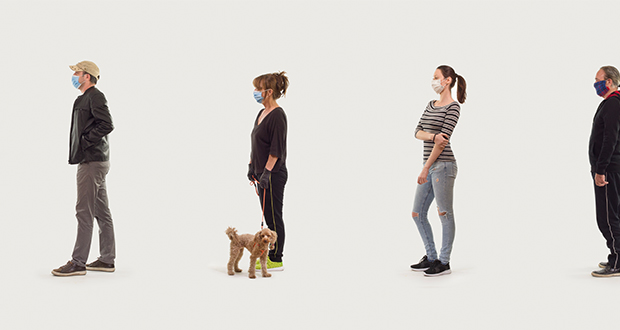Australians want frontline nurses, paramedics, and aged care and disability workers to be first in line to receive a COVID-19 vaccine jab.
That was one of the findings of an Australian National University survey that sought out attitudes of more than 3000 people on vaccine distribution.
When looking at occupations, Aussies thought paramedics should be at the front of the queue, followed by aged and disability carers, registered nurses, nursing support workers and general practitioners.
Primary school teachers were the next on that list.
Report co-author Professor Nicholas Biddle said: “The world is waiting with bated breath for a safe and effective vaccine for COVID-19. If and when it does become available, a decision will need to be made about how it will be distributed and what criteria will be used to identify who receives the vaccine first.
“Such a decision will inevitably take into account the health and economic benefits of some groups receiving it ahead of others.”
Biddle said the perspective that frontline workers should be vaccinated first “makes perfect sense” when considering where many of the COVID-19 infections in Australia’s second wave have come from and how these professionals are often directly dealing with the pandemic on a daily basis.
To gauge the traits Australians deemed important in working out vaccine priority, the researchers asked respondents to answer which of two hypothetical individuals should receive the vaccine first.
They used the format:
<name>, is a <age> year old. <pronoun> is <employment status> in <occupation>. <name> lives in an area with <rate> rates of COVID-19 and <caring/no caring responsibility for a child>. <pronoun> <has/does not have> a health condition that would make <pronoun2> susceptible to COVID-19.
Co-author Professor Matthew Gray said: “Unsurprisingly, Australians think those with pre-existing health conditions should have the highest priority when it comes to a vaccine. This was the group with the highest support among respondents.
“Females are very slightly preferred over males and older Australians are slightly preferred over younger Australians.”
And despite anti-Asian sentiments when the virus first reached Australia, Gray said there was no difference between whether or not Australians think individuals with Asian names should receive the vaccine first compared to people with Anglo-Celtic names. Ethnicity did not seem to play a role at all.
The researchers said: "Ultimately, Australians appear to be advocating for a balance between vaccines being available for those who would help the community the most (through their occupation or caring responsibilities) and those who are most at risk of COVID-19 (through their age, location, or health status).
"Governments should take this on board when making what will be one of the more consequential decisions they will make."
Do you have an idea for a story?Email [email protected]
 Aged Care Insite Australia's number one aged care news source
Aged Care Insite Australia's number one aged care news source

